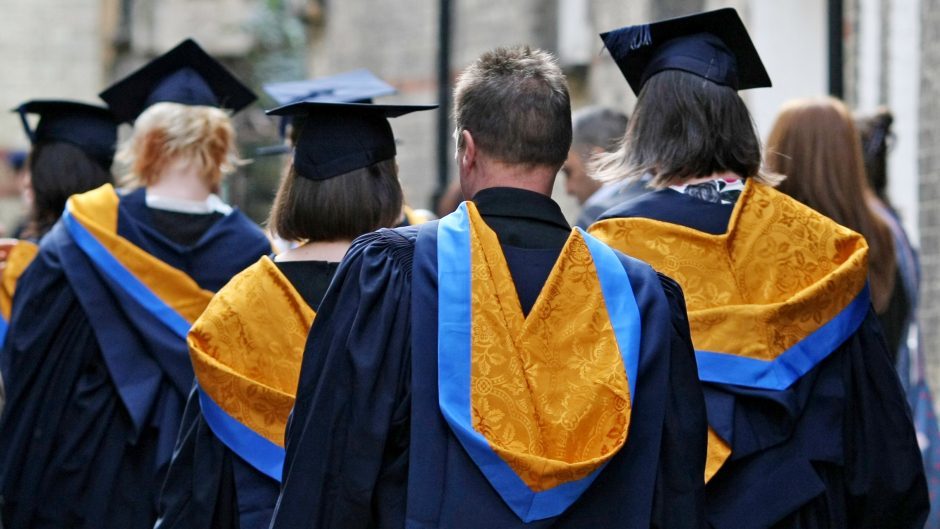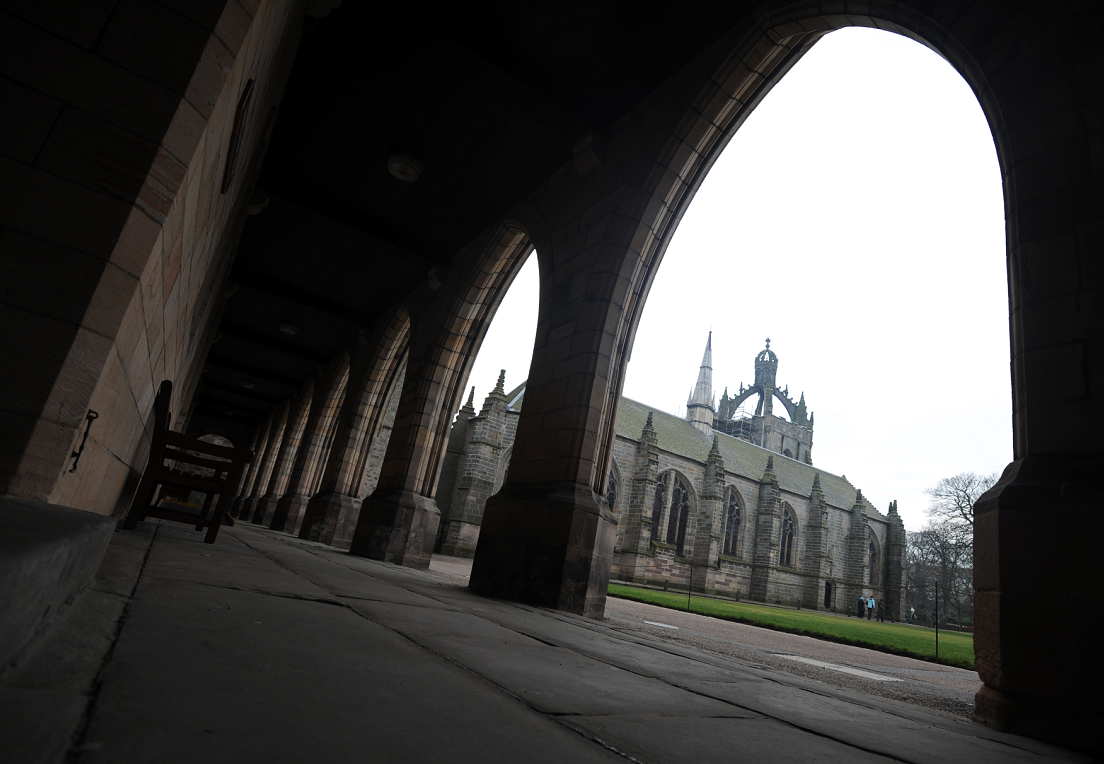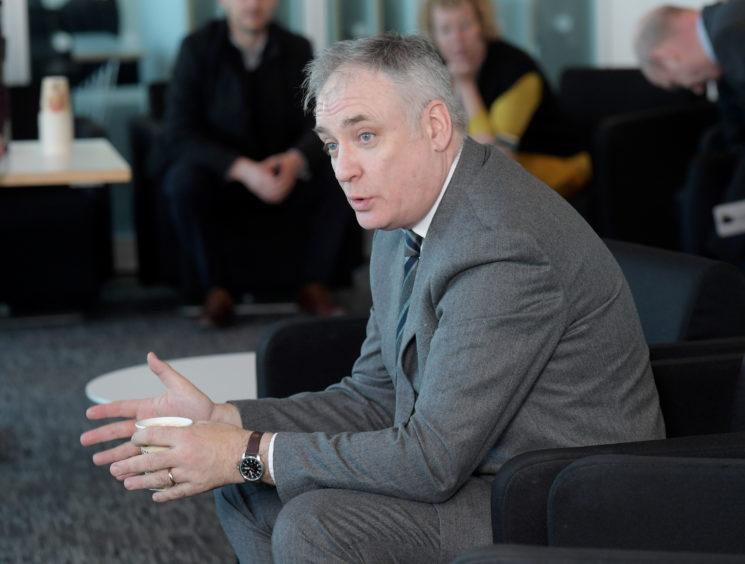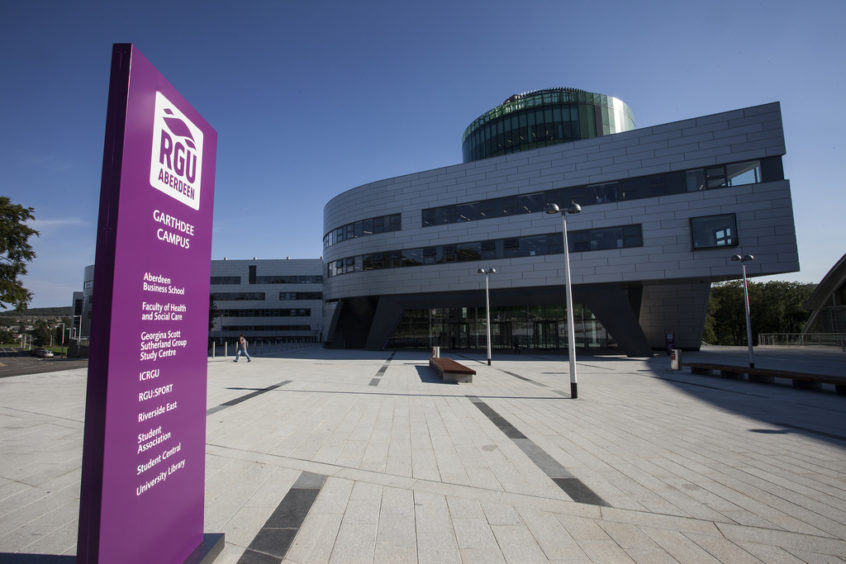Aberdeen University fears it could have to plug a £43 million hole in its finances this year – despite being boosted by a rise in applications from lucrative overseas students.
The ancient institution confirmed it was “exploring all options” to cope with the anticipated revenue blow, including pausing high-profile building projects on campus, as well as freezing staff pay and cutting the salaries of management.
However, the university also raised hopes that it could yet confound expectations, after reporting an increase in interest from fee-paying students from abroad.
Abertay University also confirmed a “strong” number of applications from overseas, while Universities Scotland said the “early indications are that international student applications are better than originally feared”.
Robert Gordon University, meanwhile, said it was in “a strong position” to mitigate the impact of the coronavirus pandemic.
Concerns were previously raised that the coronavirus crisis could lead to the number of overseas applicants to Scottish universities plummeting by half ahead of the start of the new academic year in September.
Such a slump would leave universities facing a huge funding shortfall, with fees from non-EU students making up 16% of all income at Scottish institutions.
Scotland is a wonderful place to study and every possible preparation is being made to ensure safety during #COVID—19.
First Minister @NicolaSturgeon has recorded a welcome message to students considering studying in Scotland or those returning next term ⬇️#ScotlandIsNow pic.twitter.com/f804vZCazH
— ScotGov Education (@ScotGovEdu) July 6, 2020
In Scotland the Holyrood government pays the fees of Scots and EU students, but universities can charge those from the rest of the UK up to £9,250, and face no restrictions on what they bill foreign students from outside the EU, some of whom have been asked to pay close to £40,000.
On Monday a report by the Institute for Fiscal Studies said that 13 UK institutions could go bust without a government bail-out, while other studies have suggested the number could be far higher.
Scottish Higher Education Minister Richard Lochhead, who is due to give a statement to Holyrood on Thursday on support for the sector, admitted in May that there was an “option” of ending free tuition for EU students.
A spokeswoman for Aberdeen University said the impact of the virus had been “significant” across the sector, and that it was predicting an income shortfall of £43m in 2020/21.
The university’s income in 2019 was £228.5m.
The spokeswoman said: “The university is currently exploring all options to minimise this impact, including a pause on major capital expenditure, with the exception of the Science Teaching Hub, where construction has recommenced, and essential works on the Heating System at Hillhead.
“The planned £50m development of King’s Quad and the Business School has been paused and will be reviewed when there is greater clarity in regard to the impact of Covid-19 on student recruitment.
“The university is currently exploring new income-generation ideas and has increased the number of courses available with January as well as September start dates, while a pay freeze will be implemented for staff and the university’s senior management team have taken a pay cut.”
However, the income shortfall is largely linked to an anticipated fall in international students, and Aberdeen University said there had been encouraging signs on that front.
“We regularly review our projected student numbers to monitor the likely financial impact of any changes to these numbers, noting that the Covid-19 pandemic has created uncertainties across a number of different sectors and the higher education sector is no different,” the spokeswoman said.
“However, despite the challenging situation, at present it is encouraging that we are continuing to see an increase in the number of international students applying to us for study starting in September 2020, and we are preparing to welcome students to campus.”
Meanwhile, a spokesman for Robert Gordon University said: “While the full extent of the pandemic on the university is still unclear, RGU is in a strong position to mitigate against the impact of Covid-19 while proactively identifying and seizing opportunities to support the country’s recovery.
“Much of the work being done currently is to prepare for the beginning of the new semester in September.
“We are following closely the sector-specific, safe workplace guidance for the reopening of university campuses.
“As the pandemic is still ongoing, the university will continue to review and update its position in line with Scottish and UK Government advice and guidelines.”

Alastair Sim, director of Universities Scotland, said: “While the early indications are that international student applications are better than originally feared there is still a lot of uncertainty until September, when we will know what fall in international income we face.
“So we need government to be ready to support our teaching contribution to the recovery, as well as our research contribution.”
A spokesman for Abertay University said: “All Scottish universities are facing a significant financial challenge as a result of the pandemic and the UK and Scottish governments must work together to bring forward appropriate support for the sector.
“There are strong international applications for Abertay’s degree programmes, but it is too early to accurately predict what our actual intake might be for the coming academic year.”
A Dundee University spokesman said: “It is too early to comment on potential student numbers but we note that First Minister Nicola Sturgeon and Universities Minister Michelle Donelan have expressed their support for international students considering studying in the UK recently and we hope that both governments continue to recognise the vital importance of the higher education sector.”



